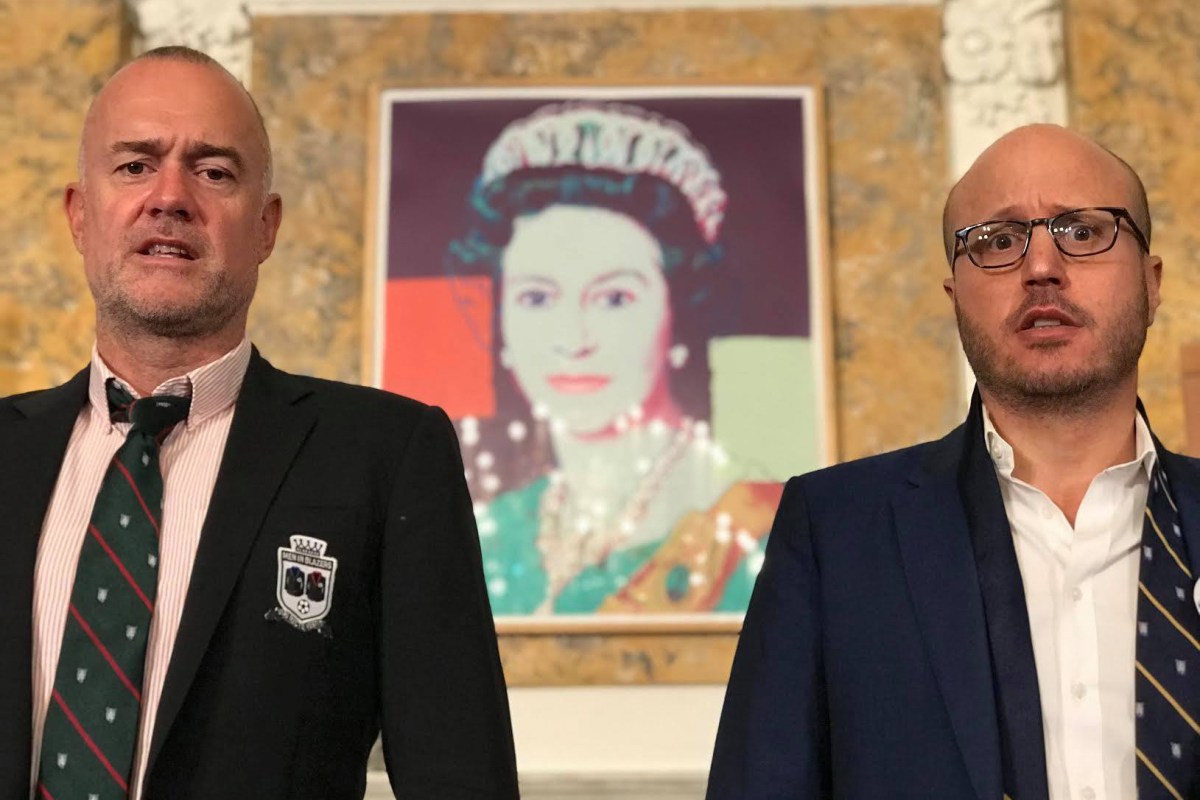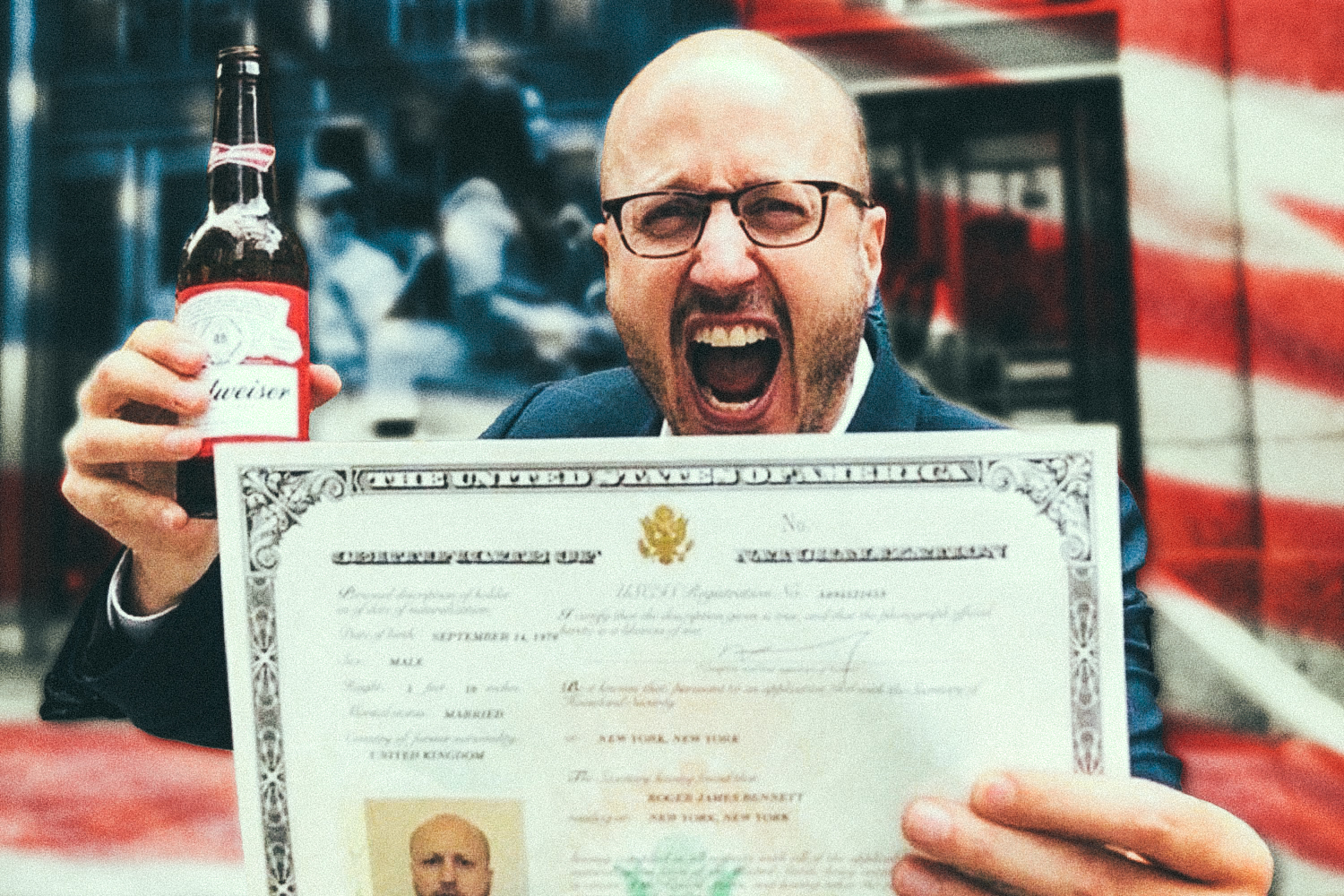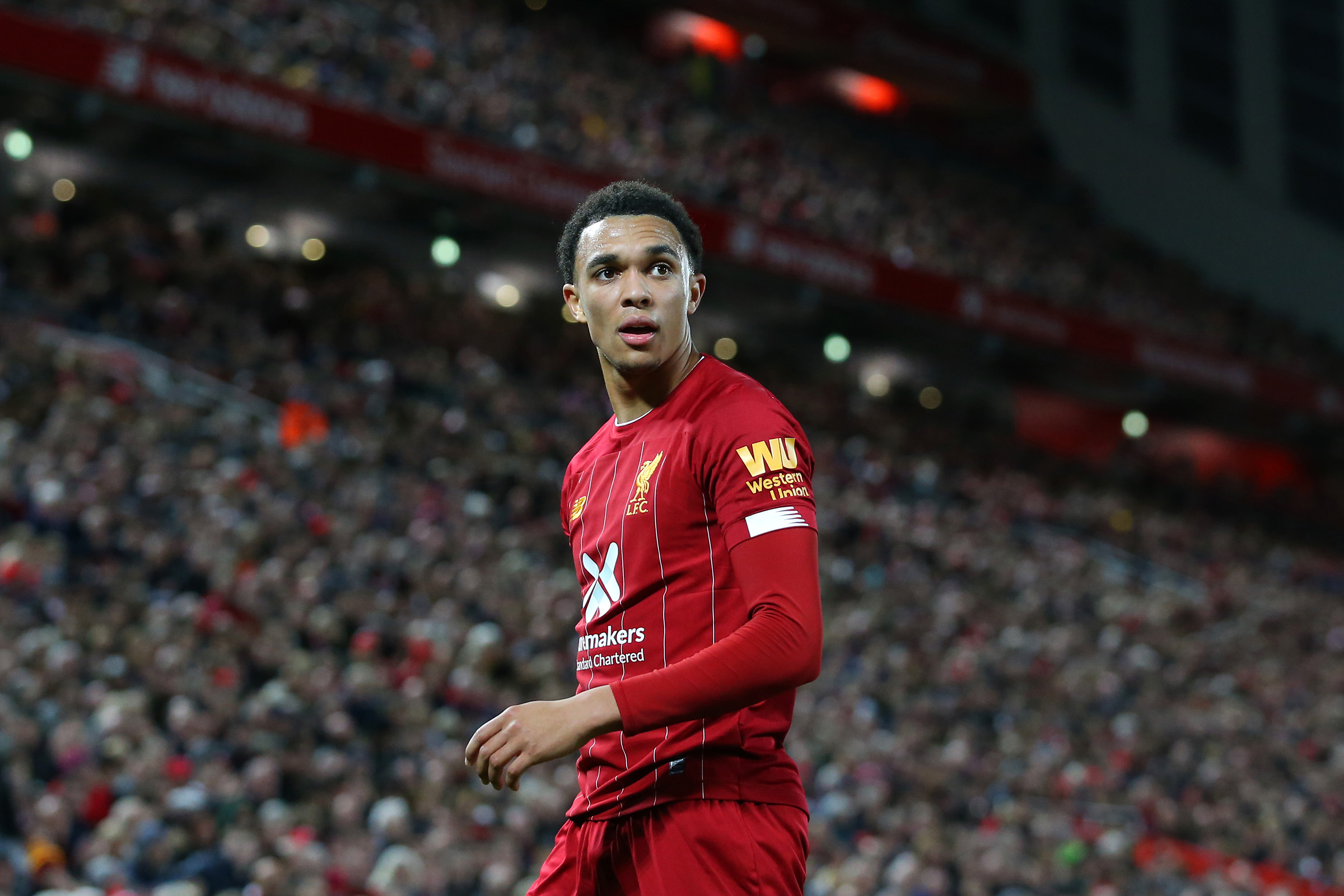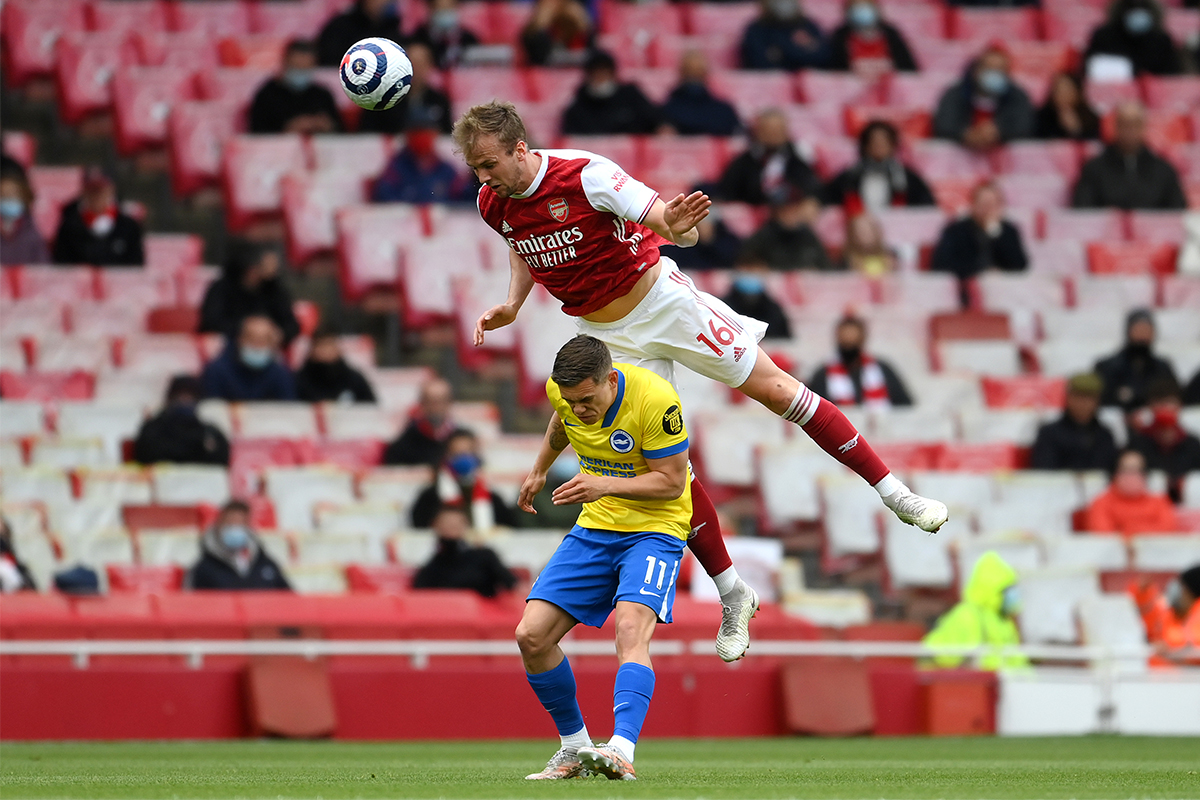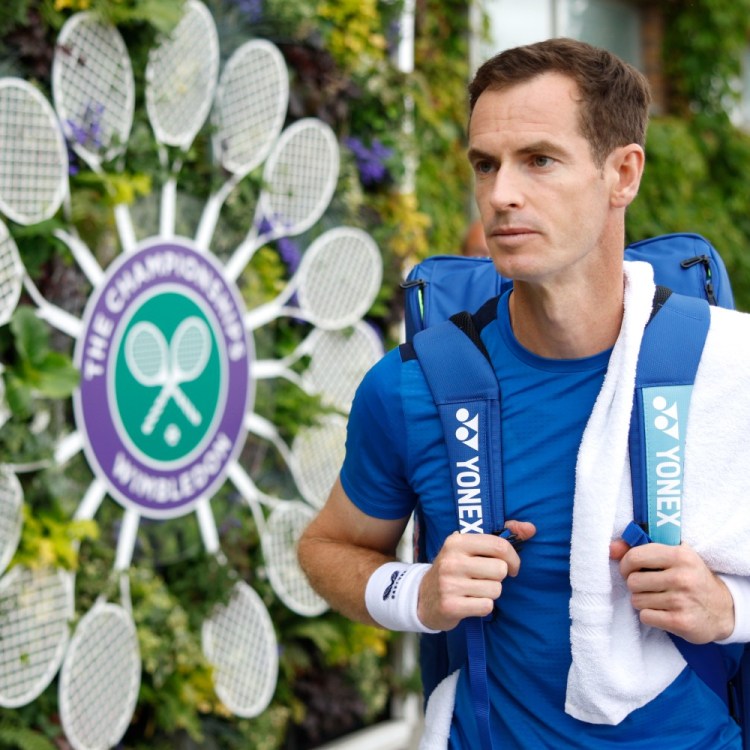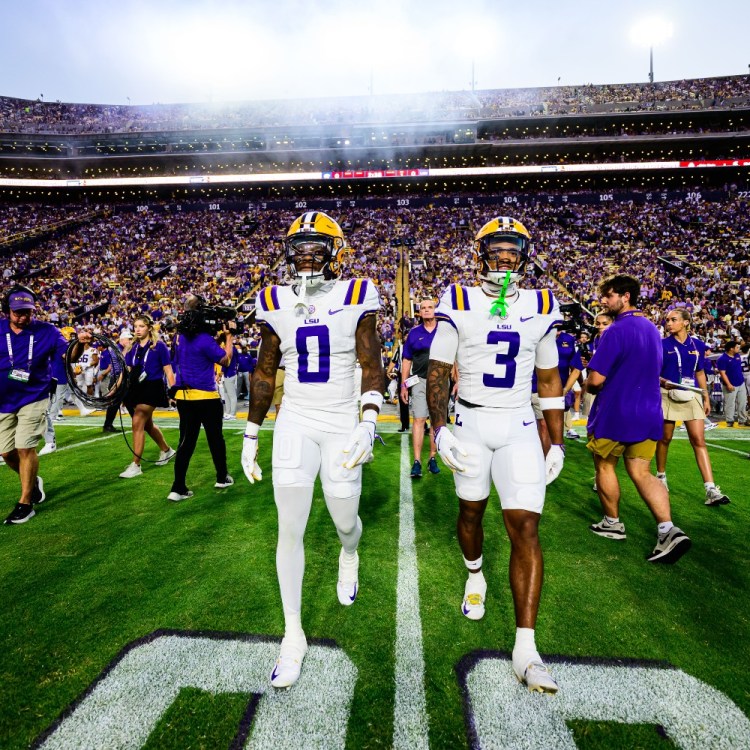The Premier League triumphantly returned this past weekend with something it hasn’t enjoyed in nearly 18 months: full stadiums. The atmosphere around England was electric, with TV commentators routinely drowned out by the pitchside mania, and the results on the field more than justified all the enthusiasm.
Miraculously, there were no draws among the 10 opening fixtures.
Perennial underachievers Arsenal kicked things off on Friday with a 2-0 loss to newly promoted Brentford, who were playing their first top-flight match in 74 years. Favorites and reigning champions Manchester City went to Tottenham and lost 1-0, while the trailing pack of Manchester United, Liverpool and Chelsea scored 11 goals between them, all winning in convincing fashion. Even Newcastle-West Ham, which no one would have pegged as a worldie, provided six goals and plenty of entertainment.
To help us make sense of it all, we turned to a man who’s been dutifully proselytizing Americans to the virtues of English soccer for more than a decade: Michael Davies, one half of the podcast and NBC Sports segment Men in Blazers. Below, we have a wide-ranging chat about everything to expect from the season ahead, including the fates of Arsenal, Manchester City, Harry Kane, Christian Pulisic, the (temporarily?) defunct European Super League, and Davies and partner Roger Bennett’s newest venture, a weekly Spotify Greenroom show that will allow fans to ask them questions in real time.
InsideHook: Tell me about your Spotify Greenroom show, which kicks off next week (Aug. 25, at 7 p.m. EST). How will you and Roger be utilizing the platform for Men in Blazers, and what can fans expect from it?
Michael Davies: We’ve built the Men in Blazers brand over 11 years now. Obviously the last year and a half has been tough. We haven’t been able to travel and do our live shows. We haven’t been able to do the GFOP [for “Great Friend of the Pod”] meetups that we normally do. Greenroom is giving us this opportunity to interact live with our fans, have them ask us questions in real time after games. We started it during the Euros. Now we’re doing it during the Premier League, before and after lots of big games.
What’s really nice about what we’re doing on Greenroom is it returns to us reacting in real time and riffing on what we’re feeling. The podcast and the TV show have become a lot more prepared over time. Our live show is more prepared and scripted, [whereas Greenroom] is really just us reacting and talking right off the cuff. It’s got some of that raw quality, which I’ve really missed.
We’ve just finished the first round of Premier League fixtures. Give me one outlandish prediction based on what you’ve seen so far.
There will not be another weekend matchday in this Premier League season where there are 10 winners and 10 losers. This will be the last time we see that. There will be draws for the rest of the Premier League season.
We probably shouldn’t tell an American audience that.
Exactly! But yes, games will be tied and they will not go to penalties in the Premier League season.
Let’s move on to the club I support: Arsenal. There were some mitigating factors to the club’s disappointing 2-0 loss to newly promoted Brentford. They had the youngest starting XI in the Premier League this weekend. They’re obviously missing some important players. We know the sky is always falling in North London, but at least they’re finally committing to a rebuild. What would you consider a good finish for them this season?
Anything that takes them back into Europe. I think Arsenal should aspire to play in Europe. And I think with these young players, they want to see them get European football under their belt. This is a very young squad, lots of young players. But you then look at the management of the football club that’s playing the opening night of the season on a newly promoted side in a new stadium with that kind of atmosphere. What are you doing to the kids, sending them all out there without any veteran leadership?
And it’s what the club has become. But it also exposes some of the mismanagement — I don’t need to tell you about it — that’s happened to the club over more than a decade now. I was just reading this morning about some of the other transfer business, like the Hector Bellerin issue. Not a player you really want to lose, a player that is very difficult to replace in many ways. I think Arsenal have got some work to do. I think that the interesting thing at Arsenal is what is going to be enough to keep Mikel Arteta? That’s the big question. Is there anything that will lose Mikel Arteta the job from that ownership?
How do you rate Arteta as a manager? Is he the right man to lead them back into Europe?
I feel similarly about Mikel Arteta the way I felt about Frank Lampard. I’d have loved Frank Lampard to be given more time, but ultimately the ownership weren’t willing to settle for the Chelsea Football Club not pressing on and not making the Champions League, and [current manager Thomas] Tuchel, of course, came in and won the Champions League, which was outstanding. But I think it’s going to be about ownership ambition and it’s going to be about fan ambition. I think Arteta’s pretty good. I think Arsenal’s form at the end of last season shouldn’t have been stealthy, but it was stealthy. They were really, really good at the end of the last season. But I think what this opening weekend showed is that it’s going to be a more competitive league this season. I think the teams at the top are going to be ruthlessly good. And Arsenal are going to have to really play up to compete there.
Let’s talk about those clubs at the top. With Arsenal looking to have hit rock bottom and Spurs — despite beating Man City 1-0 yesterday — at peril of losing Harry Kane, it looks like the traditional Big 6 is quickly becoming a Big 4. Who do you see as the biggest threat to their hegemony?
Leicester and Tottenham, and maybe West Ham. I think Tottenham have been hugely underestimated. Obviously one weekend doesn’t tell us everything, but that was an impressive performance front to back. I would say that two or three of the top players on the entire pitch yesterday in that game were all Tottenham players. Sonny and Tanganga and Lucas were unbelievable in this game. Hojbjerg, unbelievable in the game.
Leicester was superb last season and they look really good at the beginning of this season … and adding Iheanacho as a goalscorer next to Jamie Vardy, who clearly still has it — that goal he scored at the weekend was just masterful — I think they’re going to be great. The interesting thing with West Ham is going to be seeing them returning to play at London Stadium, because they may be the one Premier League club who benefited from not playing in front of fans because the atmosphere at the London Stadium was often so poor.
Let’s flip it over to the other end of the table. Obviously, Brentford is back and won their first top flight game in 74 years. Watford took three points as well. Of the three newly promoted teams, who do you think has the best chance of pulling a Leeds and finishing in the top half this year?
I’m a romantic, and I actually see all three of the promoted teams staying up. That may be insane — especially after you saw the way that Norwich, although they played some beautiful football, got just ultimately demolished by Liverpool. Obviously Brentford had that great performance. Watford seem to me the most likely team to go down, but Watford are one of these teams that manage really well because of their wage bill and just the smart way they run that club, they seem to manage the balance between Championship and Premier League really well.
What about Leeds, who we mentioned were the big surprise last year? They were thrashed at the weekend, and we know that sometimes in the past with [manager] Marcelo Bielsa, there’s a narrative that his players will eventually die from exhaustion and fizzle out.
They tire of him, they tire of Bielsa, they can’t handle it anymore! But you look across that squad and it’s still pretty strong and you kind of feel that this way they play football — they’ve got a legitimate striker in Patrick Bamford, great wide players — I think they’re going to score too many goals and have too many points ultimately to be in trouble. I don’t know that they’ll do as well this season. They could end up finishing 11th, 12th, 13th, and a lot of Leeds fans will see that as regression. But I still think that’s progress for this club, because I think they can build a foundation with that fan base.
And Bielsa’s so good for the game. Look at the way he develops players, look how good he’s been for the development of Kalvin Phillips, Luke Ayling, Jack Harrison. Look at what Bamford is doing for him. He’s just brilliant for football.
Now let’s go back to the top. Virgil Van Dijk is back and fit. Chelsea and United have added key players. Will there be a title race this year? And do City need to spend £160 million on Harry Kane to be a part of it?
I have City to win it, whether they get Harry Kane or not. I don’t think Saturday was the best representation of who they are as a team. But once again, it’s about squad. Just look at that bench! They’ve got some players coming back from injury as well. I think that De Bruyne doesn’t quite look himself right now. Phil Foden’s injured. But Pep’s still the best manager in the Premier League, and up and down the pitch, they’ve got the best players in almost every position.
I think Liverpool, Man United and Chelsea will all compete for that second place. I think it’s going to be very tight between them. I thought Man United at the weekend — Chelsea had a good performance, Liverpool had a good performance — but Manchester United’s was the most significant, because for Man United, I think a lot of [newer] Premier League fans have never seen United play like that. That was going back to the old Manchester United, watching the way Pogba and Fernandes played with each other, looking at the emergence of Mason Greenwood. By the way, you see what competition for places does — that’s the best game Lindelof has ever had in a United shirt, because he knows that Varane’s coming in now. And they’re so good out wide. [Aaron] Wan-Bissaka had one of the best games I’ve seen him have at Man United. Just from wide to inside, from front to back, the team linked up and played in that total football style that we often associate with Man United. I thought that was a significant statement.
You mentioned that some teams now have two or three world-class players at each position. Let’s talk about money. A number of Premier League teams have had trouble moving players on this summer, largely due to the fact that they’re on wages no club outside of England can afford. There have been whispers of an American-style salary cap and luxury tax being implemented by UEFA to help combat this. Do you see that as a realistic solution? Is there any recourse for UEFA to slow down the widening gap between haves and have-nots?
It’s easier for UEFA to control multiple other aspects of football than it is for them to control salaries and wages and the market. Even in Europe, there’s a free market and there are basic rules, and it’s governed by free trade and employment law. I often think the issue has become like golf, in that they keep on trying to make golf courses longer, when the actual issue is the equipment. The issue here is you can control how the money is spent all you want, there are always going to be clubs who are richer than others. So you have some owners who are willing to risk, and in some cases lose, money. Although I think for some of these oligarchs and oil money and sovereign wealth, it’s tough to say that it’s necessarily a loss in terms of what it does for them and their global brand. They’re going to lose a lot of money to pursue their ambitions for their clubs.
And I do have sympathy for a lot of football clubs. I have sympathy for locally owned teams that are doing their best to compete and trying to stay up. I think, though, that a lot of complaints — and you must feel this as an Arsenal fan — is that you have an owner, and if this was an owner of your club who was really doing everything he could with his passion, bleeding the red and white of the Gunners, trying to do what he can to go and make this club exist, you’d be like, [the amount of money being spent] is totally unfair and something’s got to happen.
You get a sense there are a lot of owners in the game, though, that they bought these clubs for financial reasons, in order to become businesses for them. And football clubs aren’t like that. They mean more to their fans. They mean more to the community. And that’s why the Super League was rejected hard. I think a lot of the owners of these clubs didn’t realize the importance, but I think it’s been said by a lot of people, by Rory Smith in the Times and by my own great mate in pod, Roger: we got rid of the Super league and now we’ve got a Super League that exists within inside the Premier League. It’s still there and it’s tough for everybody else to compete against it, but it’s probably better than having a breakaway Super League.
In the absence of a Super League, the Premier League has become one regardless.
But could you take your eyes off this weekend’s action? It was fantastic. Game after game after game were just superb. Newcastle-West Ham, that was worth getting up early for. Watching Norwich try and play that kind of football that they play. Almost every game was worth watching this weekend, competitive. The fans being back was just magical. Grown men, old men in tears at one end in Brentford-Arsenal. And then Nathaniel Chalobah, a 21-year-old in tears … Chalobah scoring that goal for Chelsea in his debut against Palace on Saturday, it wasn’t just like, “Oh, that’s nice, a guy scored on his debut and he’s young and he’s therefore in tears.” This is a kid who joined the club at eight years old, has been loaned out all over Europe, has had no idea even as recently as two weeks ago that he wasn’t going to be loaned out and sent to some European backwater to go and play more football, and in that one moment has maybe secured his Chelsea and his Premier League future and may well be, based on his performance, a pretty good central defender for his club and his country for years to come.
Shifting gears a bit, you and Roger have long championed the idea that soccer will continue to grow in the U.S. That’s certainly happening. I’ve spoken with a lot of new Premier League fans who tell me they’ve done a ton of research to identify which club they want to support. That’s always seemed like an awkward way of going about it. How would you advise new fans to find their club?
Something that Roger and I talk a lot about these days is my belief that there is no free will. There is no, like, “I get to choose my team, there is some thinker of my thoughts that will choose my Premier League team.” The sorting hat will choose you. Your thoughts will choose your team. If you just release yourself, just dive into the pool, stop grabbing onto the rocks, just dive into the flowing river and start watching, your team will choose you. And if it’s Burnley, it’s Burnley. If it’s Watford, it’s Watford. If it’s one of the top teams, you’ll be very, very lucky.
Tottenham has always been the research team at default. If Americans do research, they will by and large choose Tottenham because there becomes this thing which is they start looking at the geography of England. They want a team in London, they want a team who are good, but Chelsea and Arsenal seem too obvious. I think historically West Ham, or now of course, Brentford or Fulham or Crystal Palace, seem too risky and so they will then go for Tottenham. I think obviously Pulisic is going to attract a lot of American fans to Chelsea. Maybe Josh Sargent is going to attract a lot of American fans to Norwich, to the Canaries, which I would love. And who knows, by the end of the season we could see a few more Americans emerge. Certainly, the other big story at the beginning of the season is all the Americans emerging across Europe. It’s like everyone seems to have an American playing for them. They’re the new Portuguese.
You’re a Chelsea man. What are your expectations for Christian Pulisic this season?
My prediction for the season on Spotify Greenroom was that I think this is going to be a breakout season for Christian. In reality, it’s very difficult as boosters of the American game, which Roger and I take very seriously and we spend a lot of time, especially amongst European journalists who still tend to look down their noses at the American game. We feel it’s even more of our responsibility to be positive, to be enthusiastic, but sometimes it leads you into this place where you can’t say anything negative. And I think the reality is that Christian had a somewhat disappointing season last season at Chelsea. He just looked so bright for those first games after lockdown, at the end of his first season, but he didn’t really kick on … And he is so good. This season, I think he’s capable of really kicking on. That was a great start for him, scoring in the opening weekend of the season. He’s got a chance to go and do something amazing.
And I think the other thing, which really annoys European journalists when we say this, but Christian Pulisic is not necessarily the best of the young American players. You look at Gio Reyna, Weston McKennie and Sergino Dest and you’re like, “Wow, how great a squad could this be?” Not quite enough central defenders developing — that’s the one area that we need to figure out in the pipeline. Roger’s answer to that is always Matt Miazga, but he’s not saying that completely seriously. I think that’s the one area where the US is maybe not developing quite enough players, but these are exciting times for US soccer, especially as we build towards a 2026 World Cup.
Whether you’re looking to get into shape, or just get out of a funk, The Charge has got you covered. Sign up for our new wellness newsletter today.
